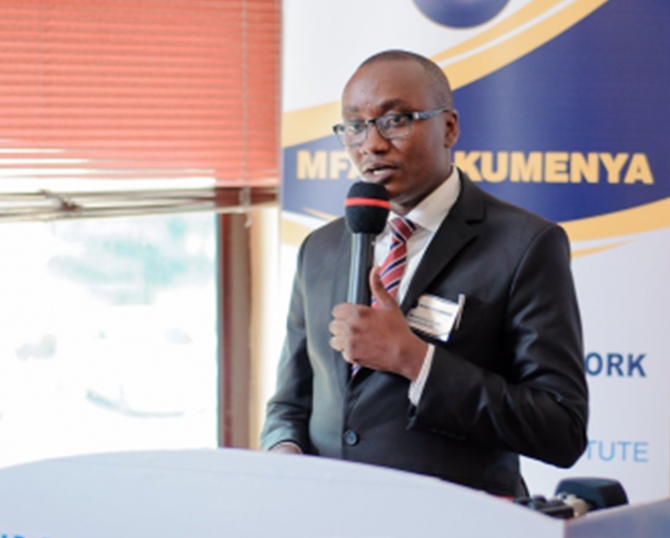
Centre for Development and Enterprises Great Lakes, an Atlas Network partner, has laid the groundwork for free-market reforms in Burundi through its policy recommendation report, distributed to over 120 key decision makers in the country.
Burundi ranks near the bottom of the Fraser Institute’s Economic Freedom of the World: 2019 Annual Report. Its ranking has been in steady decline since Burundi gained independence, dropping from 86th in 1980, to 117th in 2000, to 124th today. The main factors suppressing economic freedom are heavy bureaucracy, red tape, restrictive regulations, complicated rules, corruption, and unequal rule of law. The lack of economic freedom prevents a large portion of Burundian citizens from participating in the economy and they have no productive outlet for their creativity and ingenuity.
This February, the Centre for Development and Enterprises Great Lakes conducted an Economic Freedom Audit in partnership with Fraser Institute with support from Atlas Network, analyzing the country’s policies and institutions to diagnose the root causes that limit economic freedom. This audit led to a policy recommendation report, including proposals to liberalize trade, significantly decrease regulation, and strengthen rule of law. CDE Great Lakes reports that all Burundians stand to benefit from these reforms because they will allow the society of 11 million to be more productive as a whole.

Key stakeholders in Burundi’s government and private sector came together to discuss important issues facing the economic freedom movement in the region.
Burundi has failed to keep pace with other nations’ economic growth in part due to a long series of crises. Political and economic unrest in Burundi are fundamentally tied together because young people who fuel protests are frustrated by their inability to find a suitable job or start their own businesses. Only the privileged and powerful members of society can navigate the complex sea of paperwork and favoritism to create their own businesses and secure the best jobs.
Through their main event during the Economic Freedom Audit, Mfashakumenya Forum 2020, CDE Great Lakes conducted meetings with high-level government officials such as the vice president, parliament members, and cabinet secretaries along with leaders in the private sector, academia, and media. These meetings helped open a dialogue between advocates of liberty and those in power, pointing out that increased economic liberty will not only increase productivity on the whole, but provide opportunities for every individual citizen to realize their full potential. The most important takeaway from the Forum was that economic growth is mutually beneficial for both elites and the general population. Aimable Manirakiza, CEO of Centre for Development and Enterprises Great Lakes, reports, “With our recent Audit, we strongly believe that increasing economic freedom will lead to the reduction of extreme poverty through trade, the creation of jobs and the creation of opportunities to flourish for all in Burundi.”

Reporters from several media outlets interview CDE Great Lakes’ CEO Aimable Manirakiza during the Mfashakumenya Forum.
The Economic Freedom Audit garnered significant attention from leading media organizations in the region, leading to widespread publicity for the project. Thirty-one media outlets mentioned the Mfashakumenya Forum and over 50 have reported on the Economic Freedom Audit in total.
Atlas Network’s ongoing Economic Freedom Audit series is designed to help local partners communicate the advantages of free enterprise, using research, media, and direct engagement with policymakers to recommend public policy changes that move the country toward greater economic freedom. Countries with greater freedom rank higher in the Fraser Institute’s annual Economic Freedom of the World Index. Audits have been undertaken in Argentina, Bosnia, Brazil, Burundi, Côte d’Ivoire, Ecuador, Egypt, Ghana, Greece, Jordan, Kyrgyzstan, Lebanon, Malaysia, Morocco, Namibia, Nepal, Oman, Panama, Serbia, Sri Lanka, Tunisia, Turkey, Ukraine, Uruguay, and Venezuela.